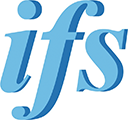
![[Translate to English:] [Translate to English:]](/fileadmin/_processed_/3/1/csm_Kerbis_59ab608fd6.jpg)
In order to simplify the use of ultra-high strength steels in existing applications and to open up the associated economic advantages for other areas of application, the toughness and thus the resistance to brittle fracture failure of welded and non-welded ultra-high strength steels is to be investigated. Advantages of the intended results for small and medium-sized enterprises (SMEs) are the possibility to avoid an expensive individual case design, which is rarely affordable by SMEs. Furthermore, the lightweight construction potential of high-strength steels will be tapped, which will not only bring economic advantages but also a resource-saving approach. Existing standards only offer recommendations for structural steels with yield strengths up to 690 MPa, but steels with yield strengths up to 1300 MPa are already in use. Previous investigations on beam-welded seams showed that when using a high-strength S960QL, which experiences a yield strength utilisation of 75% at an operating temperature of -30 °C, plate thicknesses of more than 15 mm can lead to a risk of brittle fracture, so that it is evident that the toughness of ultra-high-strength steels is a criterion relevant to design. The approach in the project includes fracture mechanics tests on base materials and various areas of welded joints of fine-grained structural steels with yield strengths of 960 MPa to 1300 MPa. A correlation of the results from the fracture mechanics tests with results from the notched bar impact tests is to be carried out in order to link the final recommendations to a simple criterion from the technical delivery conditions of the materials. Analytical and supporting numerical calculations are to be used to determine minimum notch detail toughness which can be compared with the existing component toughness. A validation of the investigations is planned at the end of the project by means of component-like large tensile tests.